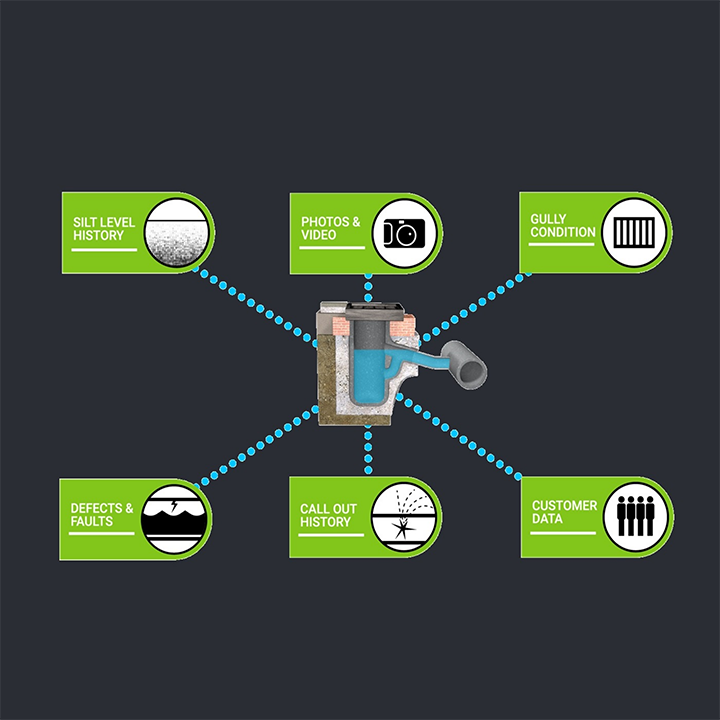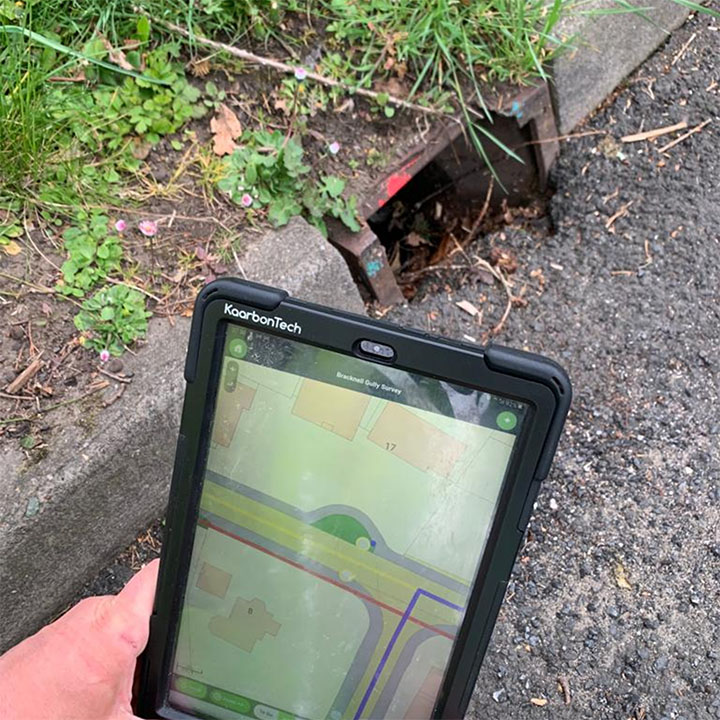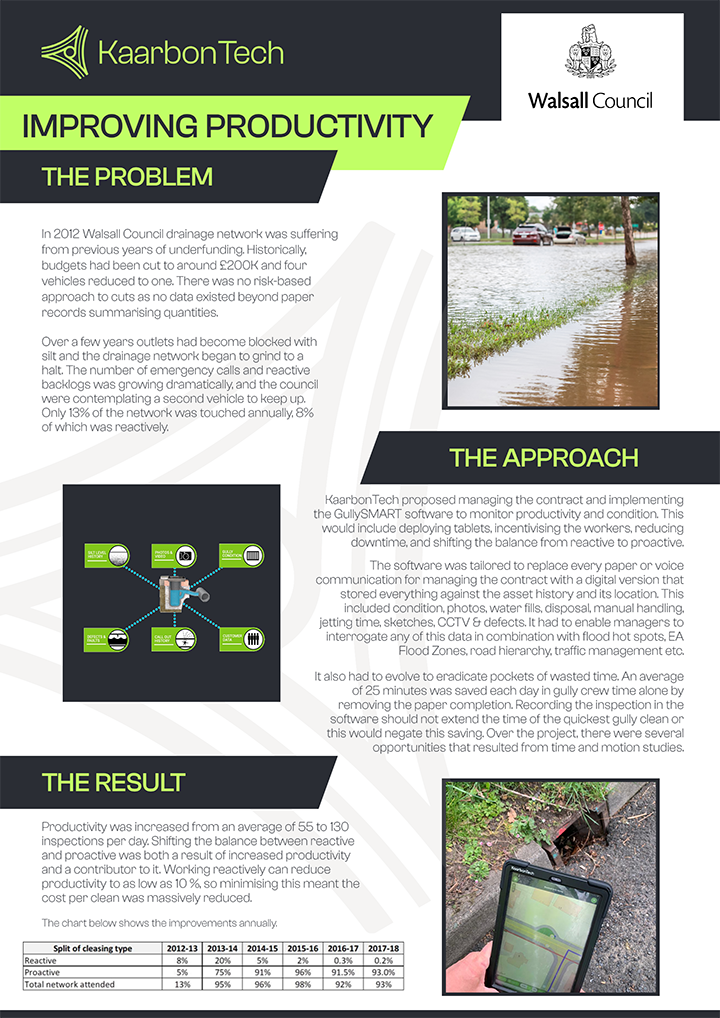As a result of underfunding, only 13% of the drainage network was touched annually, 8% of which was reactively.
In 2012 Walsall Council drainage network was suffering from previous years of underfunding. Historically, budgets had been cut to around £200K and four vehicles reduced to one. There was no risk-based approach to cuts as no data existed beyond paper records summarising quantities. Over a few years outlets had become blocked with silt and the drainage network began to grind to a halt. The number of emergency calls and reactive backlogs was growing dramatically, and the council were contemplating a second vehicle to keep up. Only 13% of the network was touched annually, 8% of which was reactively.

KaarbonTech proposed managing the contract and implementing the Gully SMART software to monitor productivity and condition. This would include deploying tablets, incentivising the workers, reducing downtime, and shifting the balance from reactive to proactive. The software was tailored to replace every paper or voice communication for managing the contract with a digital version that stored everything against the asset history and its location. This included condition, photos, water fills, disposal, manual handling, jetting time, sketches, CCTV & defects. It had to enable managers to interrogate any of this data in combination with flood hot spots, EA Flood Zones, road hierarchy, traffic management etc… It also had to evolve to eradicate pockets of wasted time. An average of 25 minutes was saved each day in gully crew time alone by removing the paper completion. Recording the inspection in the software should not extend the time of the quickest gully clean or this would negate this saving. Over the project, there were several opportunities that resulted from time and motion studies.

The balance was switched from reactive to proactive. Productivity was increased from an average of 55 to 130 inspections per day.
Productivity was increased from an average of 55 to 130 inspections per day. Shifting the balance between reactive and proactive was both a result of increased productivity and a contributor to it. Working reactively can reduce productivity to as low as 10 %, so minimising this meant the cost per clean was massively reduced.

"Removing unnecessary gully cleaning has boosted productivity, leading to multiple awards for Walsall's improved service
"
